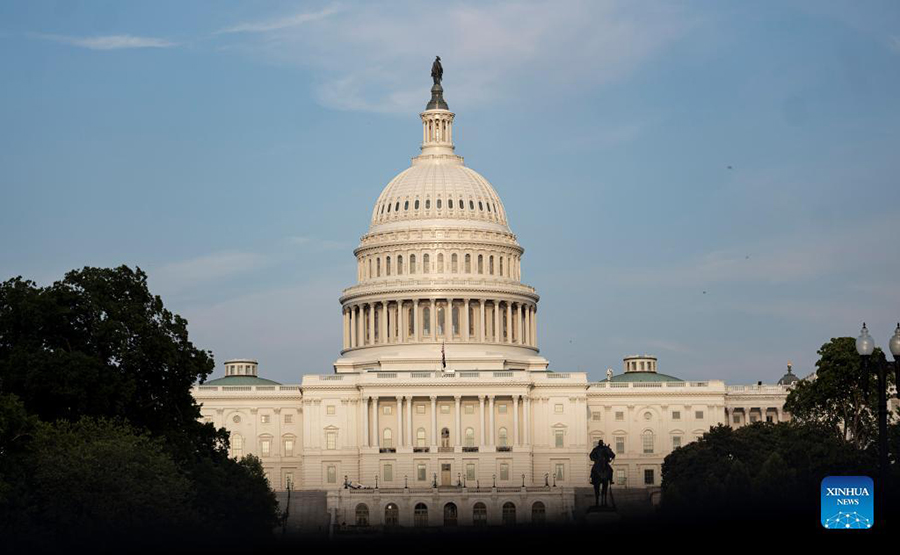
Photo taken on Aug 26, 2021 shows the Capitol building in Washington, D.C., the United States. [Photo/Xinhua]
This is an editorial from China Daily.
Like other recent diplomatic engagements between Beijing and Washington, the Sunday telephone conversation between State Councilor and Foreign Minister Wang Yi and US Secretary of State Antony Blinken has again highlighted the significance of bilateral cooperation on key global issues.
Although no agreement was reached, either on whether and what a message should be sent to the Taliban by the United Nations Security Council, talking at least served to keep each other updated about the two sides of-the-moment concerns, which is essential to preventing any misjudgment. But to what extent each side can affect the other's strategic orientation is another matter, considering the two governments' deep and deepening mutual mistrust.
Just as Wang told Blinken, the situation in Afghanistan, like climate change, is an issue of significant mutual concern, one on which China and the US could and should work together — a precious point of convergence that shows "dialogue and cooperation are better than confrontation".
Despite Beijing's criticism of Washington's approach to Afghanistan as well as the US military presence there, Wang reminded Blinken of the "very negative" consequences of the hasty US pullout, warning of a more rampant terrorist comeback.
Instead of having the UN Security Council mount pressure on the Taliban, Wang said the international community should engage with it and "positively guide" it.
Rather than leave behind a war-torn Afghanistan, Beijing wants Washington to make its due contribution to rebuilding it. Besides offering economic and humanitarian aid, Wang said, the US should help the Taliban run government functions normally, maintain stability, stabilize the Afghan economy and stop currency depreciation.
To Beijing, those responsibilities fall on Washington's shoulders, but they run counter to the White House's exit plan. The US president has made it clear nation-building was never a part of the US mission in Afghanistan. Identifying the Afghan war as an infinite drain on US resources, which Joe Biden believes will tie the US' hands when it desperately needs to look elsewhere and address greater "threats". Even the deadly suicide attack on Thursday and continuing terrorist threat in Kabul have failed to sway his determination to meet the Aug 31 deadline.
At home and abroad, Biden is being blamed for the fiasco in Kabul. And the way the withdrawal is being carried out from Kabul is in some ways uglier than that from Saigon. But Biden is convinced it is a price worth paying for longer-term US interests. The US must relieve itself of exhausting international burdens to focus on major power competition, according to the "Biden Doctrine".
The great US strategic contraction under Donald Trump's and Biden's watch may indeed reduce some unwanted distractions. But with Biden eager to show "America is back", he is having even greater difficulty demonstrating the US has the capability and credibility needed for global leadership than in downsizing the US' international commitments.

 中文
中文





